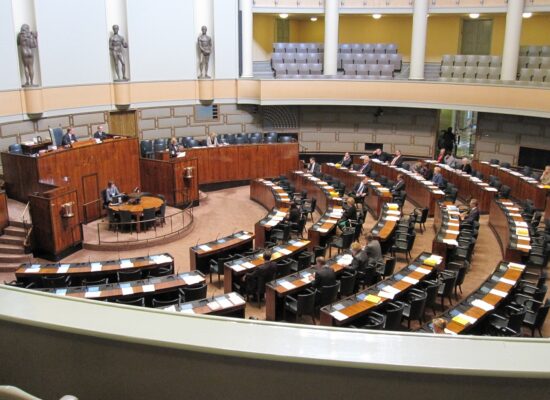As Canada’s political landscape finds itself poised at a crossroads, Pierre Poilievre, leader of the Conservative Party, emerges as a key figure with the potential to reshape the country’s future. The prospect of Poilievre stepping into the role of Prime Minister introduces a narrative centered around a return to what he describes as “common sense politics,” offering a stark contrast to the progressive policies implemented by outgoing Prime Minister Justin Trudeau.
Embed from Getty ImagesEarly Life and Political Beginnings
Born in Alberta and raised in Calgary by adoptive parents who were school teachers, Poilievre’s early life was marked by a deep belief in the power of community and family. He has consistently articulated a vision of a Canada where fiscal prudence reigns supreme, emphasizing low taxes and smaller government—a philosophy that he espoused from as young as 20 when he participated in an essay contest outlining his vision for the country as Prime Minister.
Embed from Getty ImagesPoilievre’s political journey began with a firm foundation in conservative politics. His foray into the political arena was accelerated by his association with Stockwell Day during the Canadian Alliance leadership campaign, eventually leading to his election to the House of Commons at just 25 years old. Over the years, Poilievre has crafted a persona characterized by vigorous debate and sharp rhetoric, earning him the nickname “Skippy” during his early years in Ottawa.
Leadership and Conservative Momentum
Under his leadership, the Conservative Party has gained significant traction, widening its appeal among Canadians disenchanted with the current government’s handling of economic and social issues. The recent resignation of Justin Trudeau has further amplified Poilievre’s prominence, with many Canadians seeking change amidst economic uncertainty and a pressing housing crisis.
Despite his appeal to those frustrated by the status quo, Poilievre’s approach has not been without controversy:
- Combative Style: Critics argue that his combative style and straightforward rhetoric oversimplify complex national issues.
- Strategic Silence: His silence on certain social matters hints at calculated political strategy rather than oversight.
Yet, his core promises resonate with a significant portion of the electorate:
- Dismantling Trudeau’s carbon pricing initiative.
- Addressing crime with unprecedented rigor.
A Personal Touch to Policy
Poilievre’s political narrative also intertwines with personal elements, as seen in his marriage to Anaida, who arrived in Canada as a child refugee from Venezuela. This personal connection reflects his broader stance on immigration, advocating for skilled immigration tied to housing capacity without falling back on restrictive social policies.
The Road Ahead
As Canada stands on the precipice of political change, Pierre Poilievre’s ascent is indeed a story to watch. His blend of populist rhetoric and promises of economic reform could redefine Canada’s approach to governance, situating him as a pivotal figure in the impending political dialogues with both domestic and international implications—especially in light of changing global dynamics and prospective US policies under President-elect Donald Trump.
The months ahead will undoubtedly test Poilievre’s ability to navigate the complexities of leadership, public sentiment, and policy-making, offering Canadians a front-row seat to what could be a defining chapter in their nation’s history.








